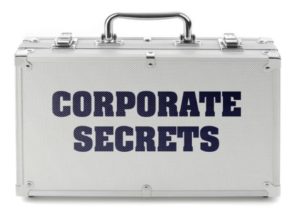Six Reasons the Defend Trade Secrets Act of 2016 is a Game-Changer
May 25, 2016 by Brown Fox

The nearly unanimously supported Defend Trade Secrets Act of 2016 (DTSA) was signed into law last month with little fanfare or controversy. The DTSA amends federal law to provide civil remedies for misappropriation of trade secrets. Contrary to the DTSA’s low profile, the law likely will increase trade secret litigation and will require companies to amend most of their contracts with workers. Here are the six major take-aways:
1. Whistleblowers and those sharing potential trade secrets with the government or courts have gained statutory immunity in certain circumstances.
The rules were amended to provide immunity for “confidential disclosure of a trade secret to the government or in a court filing.” The DTSA also provides new protection to individuals when sharing an employer’s trade secrets in an anti-retaliation lawsuit. Expect bolder whistleblowers in the future.
2. Companies, prepare to amend your contracts with workers.
The DTSA provides the following:
An employer shall provide notice of the immunity set forth in this subsection in any contract or agreement with an employee that governs the use of a trade secret or other confidential information.
In other words, it will become a federal requirement that employers include notice of this immunity in all employment agreements, independent contractor agreements, intellectual property agreements, non-compete agreements and any other agreement that cover trade secrets or protection of confidential information.
3. An “employee” under the DTSA is something entirely different than an “employee” elsewhere.
The amended law providing immunity also defines, for the purposes of the DTSA, “employees” as “any individual performing work as a contractor or consultant for an employer.” This is a stunningly expansive definition, given independent contractors are considered a completely different type of worker when compared to employees (see here, here, and here, but also here).
4. Despite whistleblower protections, corporations are more empowered to go on the offense.
Companies have had access to the courthouse under state law, but the DTSA opens the doors to the federal courthouse under federal law. Some legal commentators have asserted that the DTSA places misappropriation “on par with patents, copyrights, and trademarks,” all of which already have federal civil protection. Once companies and their attorneys catch on, we expect to see a jump in trade secret lawsuits.
5. Civil seizure as a remedy is now available.
Under the DTSA, trade secret holders may now pursue “civil seizure” of misappropriated trade secrets. The party who was holding the seized trade secrets also is given a hearing within seven days of the seizure, along with the ability to obtain damages in the event of a wrongful or excessive seizure or wrongful or excessive attempted seizure.
6. The DTSA rejects the “Inevitable Disclosure” Doctrine as an argument for injunctive relief.
The legal doctrine of “inevitable disclosure” suggests as it reads: if Employee A leaves Past Employer for New Employer, Employee A will inevitably disclose the trade secrets of Past Employer. However, the DTSA specifically provides that an injunctive remedy is not available simply because of the information the former employee “knows.” In contrast, many states provide protections to prevent inevitable disclosure, including Texas. (Texas recognizes the inevitable disclosure doctrine in the Texas Uniform Trade Secrets Act (TUTSA). This dichotomy may impact which forum companies choose to litigate their claims.
With extensive trade secret litigation experience, Brown Fox is prepared to maximize our clients’ rights under the new DTSA. If you or your company would like assistance with how to navigate these changes, we recommend contacting skilled trade secret and employment lawyers.
Russ Brown is a labor and employment attorney, founding member of the firm, and serves as Managing Partner. To learn more about Brown Fox’s labor and employment practice group, click here.


